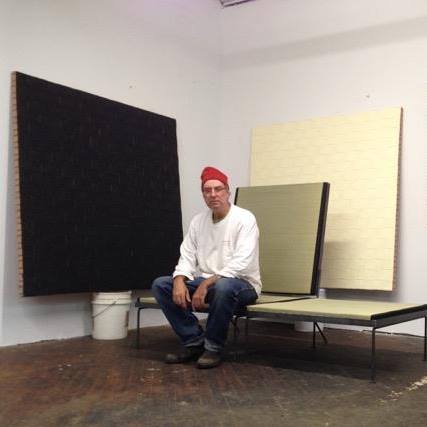Schwarz
View current page
...more recent posts
right now, in 105,7 FM Campinas-SP, Brazil, we are re-transmiting your internet stream.
we are rádio muda, a free radio ! today was a special day! some people got together and during the intire day there were events related to zapatism, the ezln and la otra campaña. rádio muda was a part of it and got in touch with a free radio from mexico city called radio zapote, and also with el CML - centro de medios libres. they made special shows knowing that we were re-transmiting their internet streams here in Campinas-SP, Brazil! it was our "first time" in doing this kind of international transmission and dialogue! at night we sent to our internet stream the sound of a band that was playing live in front of rádio muda and people from other brazilian free radios from other cities were listening, and also from mexico! it was great. also people from new york and toronto got our transmssions and re-transmissions.
anyway, i wanted to tell you that at the end of all that, when everybody left the radio, we left the wfmu stream sintonized and we are transmiting it now (3:03AM) in 105,7FM in Campinas-SP Brazil and also in http://orelha.radiolivre.org:8000/muda, untill the next person comes to rádio muda to start his or her show !
exploring the internet and its endless possibilities is great!
thats it, saludos desde rádio muda and brazil! [please reply to pauletsz@gmail.com)
Emmett was a masterful character actor and brilliant in a lot of ways, but he was eclectic -- he tended to take from people what he needed. One of the seminal guys, but who was not in the Mime Troupe, was Billy Murcott. Billy was this quiet, uncharismatic, very smart guy that he'd grown up with. He always had graphs and charts of different historical events up on his wall. And I think Emmett created the appropriate personality to embody the insight that Billy had. It was Billy, as I remember, who crystallized something that was in the air, the notion of Free, I think, and the articulation of autonomy. And it was radical enough and extreme enough to take us even another step farther out than the Mime Troupe. That real power was autonomy and that all ideologies had some degree of bullshit in them. And that the left, the socialist left, was no longer a model of anything. It had degenerated into a bunch of old men yapping theory and ideology. That what was required was for people to be forthright and straightforward and to take responsibility for doing what they felt ought to be done, regardless of ideology -- just do it. And that people like us were not going to be any more comfortable in a leftist nation-state than we were in a rightist nation-state. Billy wrote the first Digger Papers. The very first manifestos were written by Billy, as far as I remember. Billy was the unsung genius behind the Diggers.
SUBURBS: Exurbanization and Gentrification: How the Two Patterns Have Been Linked Since the Beginning of Urban History
Hurricane Katrina was the biggest natural disaster in US history - and its aftermath became the biggest management disaster in history as well. A year later, Fortune lays bare this surreal tale of incompetence, political cowardice...and rebirth.
Special Edition of the Katrina Index: A One-Year Review of Key Indicators of Recovery in Post-Storm New Orleans - The Brookings Institute
This is the principle that guides his most famous essay, “The Work of Art in the Age of Mechanical Reproduction,” now canonical text in art history, film studies, and related fields. In it Benjamin argues that traditionally, a painting or sculpture was endowed with something he calls “aura, deriving from a recognition of its absolute uniqueness. That is why thousands of people line up every day for a quick, obscured glimps of the Mona Lisa: not just to see it but to be it its quasi-sacred presence. In the age of technology, Benjamin perceived, this uniqueness is diluted by the ready availability of reproductions, which makes it possible to see a work of art without ever having seen the original. Furthermore, in the twentieth century’s characteristic art forms, photograph and film, there is no such thing as an original.
Surprisingly, Benjamin welcomed the idea of art without aura. He reasoned that aura was a kind of aristocratic mystery, and that its disappearance should herald a new, more democratic art: “The social significance of film, even—and especially—in its most positive form, is inconceivable without its destructive, cathartic side: the liquidation of the value of tradition in the cultural heritage.” This rhetoric, with its enthusiasm for “destruction” and “liquidation,” sounds distinctly odd coming from Benjamin. How, the reader wonders, did the great champion of Proust and Kafka end up decrying uniqueness and originality? How could the man who compared “In Search of Lost Time” to the Sistine Chapel ceiling also believe that “contemplative immersion” in a work of art was “a breeding ground for asocial behavior”?
The answer lies in Benjamin’s exceedingly awkward embrace of Marxism. Like many other intellectuals of the time, he came to feel that only Communism could save Europe from war, depression, and Fascism.
design*sponge hawking crapola on the HG
werent we the first ones to point out this waste of commercial potential ?
house and home archive from modern mechanix
via justin from the fabprefab message board
